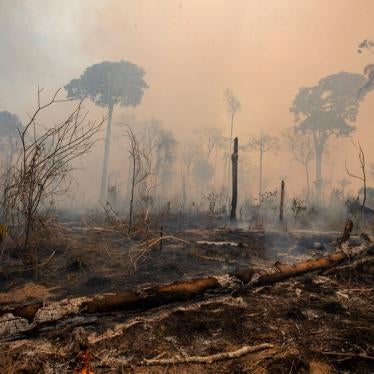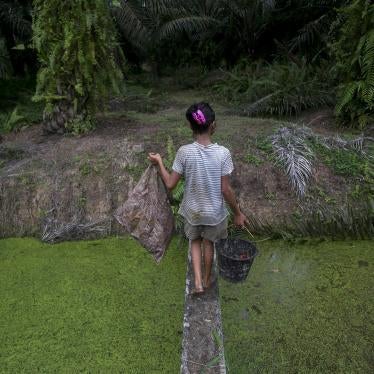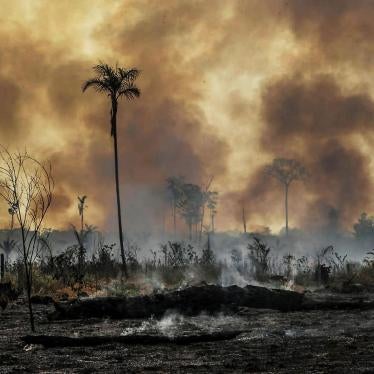More than 100 countries have signed on to the Glasgow Leaders’ Declaration on Forests and Land Use to halt and reverse deforestation and land degradation by 2030, announced on November 2 at the COP26 global climate summit. With deforestation the second-largest source of greenhouse gas emissions and linked to many rights violations, this is positive news.
This is not the first initiative of its kind, and though previous agreements espoused the same goals, the countries involved have largely failed to meet them. What is unprecedented about the Glasgow Declaration is the range of signatories. The list includes the countries most responsible for driving global deforestation either as producers or consumers of agricultural commodities and timber, among them Brazil, China, European Union member countries, Russia, and the United States.
While this is a step in the right direction, there’s a gulf between the commitment these countries have made at COP26 and their policies.
None of the world’s major economies currently have robust laws in place to restrict the import of agricultural commodities that drive global deforestation, for example, though there are signs of progress in this direction in the European Union, the United Kingdom and the United States. This still leaves out China, whose imports of agricultural commodities drive a quarter of all global deforestation linked to trade.
Many of the countries that hold the world’s largest forest resources also have far from exemplary practices.
In Russia’s Far East, poor management and a warmer climate enabled forest fires to rage out of control this year, burning through millions of hectares of boreal forest and triggering states of emergency in towns overwhelmed by the smoke. Illegal logging is widespread.
In Brazil, the government of President Jair Bolsonaro has sabotaged environmental law enforcement, publicly advocated in favor of loggers, miners, and other groups that illegally exploit the Amazon’s resources, and sought to roll back Indigenous peoples’ rights over their lands, which are among the best protected forests in the Amazon.
In the Democratic Republic of Congo, the environment minister has vowed to lift a logging moratorium intended to bring under control the illegal exploitation of the world’s second largest rainforest. The government had granted multiple contracts that seem to violate the moratorium anyway. The move could give the upper hand to logging companies, which could request concessions even as Indigenous peoples continue to wait for a legal framework to be adopted in the country that recognizes their rights over their traditional territories.
In Indonesia, notable progress has been made in recent years to curb deforestation but implementation of new legislation that weakens environmental regulations is expected to have a negative impact on deforestation and land disputes, including by undermining Indigenous peoples’ rights over their territories.
To bridge the gulf between pledges and reality, the UK should work with signatories to adopt a plan for implementation that includes intermediary targets and monitoring mechanisms to hold all parties accountable to deliver results, fast. And it should lead by example by adopting a strong law at home that restricts the imports of agricultural commodities that are issued from deforestation or linked to rights abuses. There’s much work to do.








